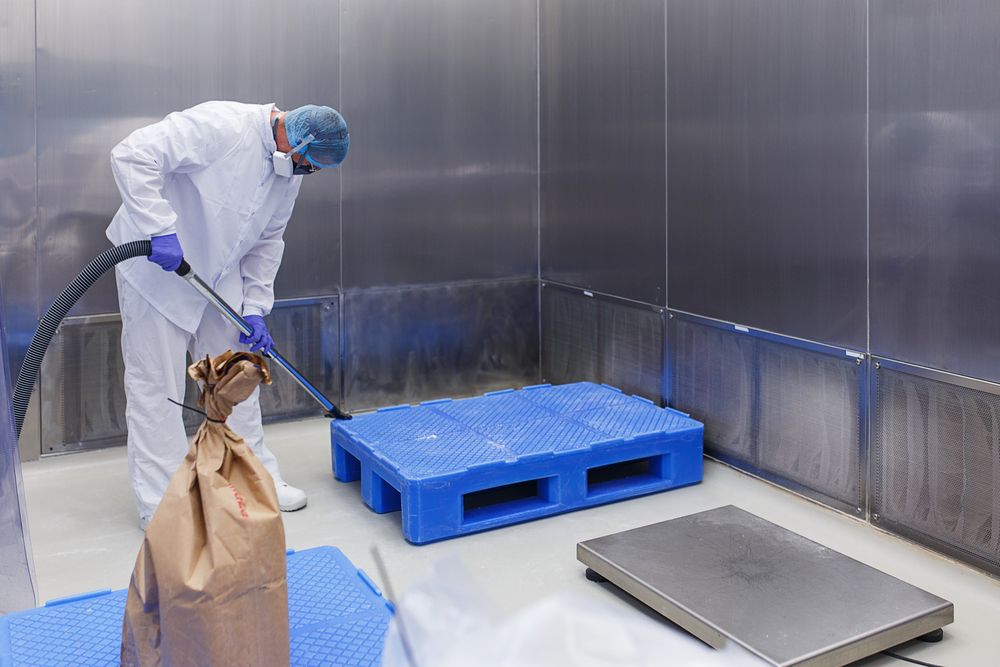
The 5 Basics of Lab Maintenance
If your lab is looking to remain as efficient or eco-friendly as possible, there are specific guidelines in place to guarantee you meet your goal. Essentially, if you place a high priority on smooth operations, there are five critical tenets to keep in mind.
In this post, we’ll explore the five tenets of lab maintenance. Essentially, keeping these five basics in mind will help you to maintain your cleanliness, operations and equipment. Additionally, it will help to prevent your lab from losing money. Keep reading to find out more.
1. Laboratory Cleaning
Naturally, keeping your lab clean is the first tenet of lab maintenance. In addition, it’s the simplest, cheapest and most obvious way to keep your lab in great shape. However, despite the simplicity, you’d be amazed how often it’s overlooked.
It’s best to hold all lab personnel accountable for cleanliness. Firstly, make sure to wipe down equipment at the end of the day. Decontamination services should regularly be used for equipment like biosafety cabinets, incubators and centrifuges.
When it comes to your equipment, always consult the manual or manufacturer specifications for cleaning recommendations. For example, certain instruments, like microscopes, require regular, thorough cleaning. By using a 70/30 mixture of ether and alcohol, you can sanitize your microscopes and prevent the spreading of harmful bacteria.
For cleaning tasks that seem demanding, it’s best to hire professional services. Ultimately, this will guarantee your equipment remains functional and prevent unpredictable complications.
2. Lab Equipment Calibration
We cannot stress the importance of equipment calibration enough. In most scientific industries, data is the principle reason for the work. And in several fields, labs rely on expensive equipment to produce reliable readings. Essentially, calibration keeps them accurate and operational.
Keeping your lab’s instruments in good condition is crucial. Even maintaining equipment that doesn’t produce data, like freezers and refrigerators, is vital to your lab. Cryostar offers calibration using tests and methods certified to N.I.S.T. traceable standards. Basically, equipment calibration guarantees that your instruments produce reliable data.
Above all, it’s important to keep in mind that failing to calibrate your equipment will not only hurt your accuracy, it could lead to significant disruptions. Additionally, in any kind of medical field, it could lead to embarrassing (and even dangerous) mistakes in your patients’ testing.
Assess each instrument individually to find what their calibration requirements are. Essentially, it’s best to consult a professional calibration service and schedule regular appointments. Ultimately, this will ensure your equipment remains reliable.
3. Lab Equipment Repairs
As every lab employee knows, equipment breakdowns are inevitable. No lab is immune to disrepair. And unfortunately, these breakdowns are usually inconvenient and expensive.
However, do not immediately throw out equipment that’s stopped working. First, research all of the information you can find. Then, consult the manuals, warranty information or contact the manufacturer. Basically, you want to find out if parts can be replaced instead of replacing the entire unit.
Ultimately, when it comes to disrepair, never immediately dispose of anything. See if there’s a way to repair the equipment first. Microscopes, refrigerators, centrifuges and filtration systems can all be repaired in simple ways without replacements.
4. Refurbishment
When it comes to broken equipment, repairs can be a huge help. However, sometimes refurbishment can be the best way to go. You can even sell the used equipment to earn some money back for your lab.
To refurbish your equipment, it’s recommended to disassemble the unit entirely. Next, you’ll need to individually clean each component. When necessary, polish the pieces. Re-lubricate moving parts and replace any pieces with visible damage. Then, put the equipment back together.
Naturally, to properly refurbish, there are several additional factors to consider. Of course, you’ll have to determine the value and selling restrictions. Additionally, the equipment’s age and functionality are important matters to consider.
5. Replacements
Undoubtedly, no matter how stringent you are in your cleaning and maintenance, replacements are sometimes necessary. Choosing replacement equipment, like freezers and refrigerators, can be a daunting task.
In many cases, the less expensive replacement models can seem like the best choice. Unfortunately, in the long-term, this can actually cost your lab more money. Usually, lower cost means lower quality. Ultimately, this means the equipment is more prone to disrepair.
High quality equipment has several enormous benefits. Aside from being more durable, it’s easier to find replacement parts for. Additionally, cleaning and maintenance is usually much easier. Essentially, whenever possible, it will benefit your lab to select high quality equipment.
Conclusion
Cryostar Industries has a full-time dedication to keeping scientific industries flourishing. Ultimately, by keeping these five basic tenets in mind, your lab can avoid costly, inconvenient problems.
Cryostar Industries has always been passionate about keeping New York and Long Island labs functional and efficient. All of our services, from laboratory freezer repairs to calibration, are in place to benefit scientific industries in various fields. And managing a thriving laboratory can be a complex operation.
| Call for Immediate Lab Services |
|---|
| Long Island, Nassau & Suffolk County Call: 516-333-4006 |
| The Bronx, Manhattan, Brooklyn, Queens, & Staten Island Call: 718-885-0833 |
| Albany & Southern New York State Call: 800-564-5513 |
| Piscataway, Northern & Central New Jersey Call: 800-564-5513 |
| Danbury Connecticut & Surrounding Areas Call: 203-748-7343 |
24/7 Emergency Service |